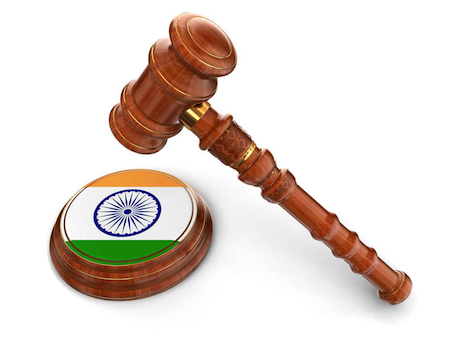
India’s Supreme Court has ruled that citizens have a fundamental right to privacy. The judges ruled the right to privacy was “an intrinsic part of [Indian Constitution] Article 21 that protects life and liberty.” The ruling has implications for the government’s vast biometric ID scheme, covering access to benefits, bank accounts, and payment of taxes. Rights groups are concerned personal data could be misused. The authorities want registration to be compulsory.
Will this impact other countries efforts to deal with security and privacy issues?
The verdict overturns two previous rulings by the top Indian court which said that privacy was not a fundamental right.
The nine-judge bench, comprising all the sitting judges in the Supreme Court, was necessary because one of the earlier rulings, made in 1954, was delivered by an eight-judge bench.
Analysis by Geeta Pandey, BBC News, Delhi:
The Supreme Court verdict is a huge setback for the government which has insisted that privacy is not an inalienable fundamental right guaranteed under the constitution.
When the Aadhaar (government) database was launched, the authorities said it would be a voluntary scheme which would help them weed out corruption while passing on welfare benefits to the most needy citizens.
But in the past couple of years, it has been made mandatory for filing tax returns, opening bank accounts, securing loans, buying and selling property, or even making purchases of 50,000 rupees ($780; £610) and above.
The petitioners had said this would help the authorities create a comprehensive profile of a person’s spending habits and expressed apprehension that this data could be misused by a government which does not believe in people’s right to privacy.
During the hearing of the case, the government’s lawyers had told the court that citizens did not have absolute right over their bodies which meant that people could be forced to give their biometrics.
Alarmed citizens can now breathe a sigh of relief – as one legal expert said, Thursday’s order recognises the right of a citizen to be the master of his body and mind.
Speaking to reporters outside court, lawyer Prashant Bhushan, who represented the petitioners, described the ruling as “historic”.
He said that a smaller bench would now look into the validity of the Aadhaar scheme, the largest biometric identity scheme in the world.
Some quick facts on Aadhaar:
- Aadhaar is the world’s largest biometric ID card programme.
- Over the past eight years, the government has collected fingerprints and iris scans from more than a billion citizens and stored them in a high security data centre.
- Indians are provided with a 12-digit random number issued by the Unique Identification Authority of India (UIDAI).
- Since its inception, activists have expressed concern over the security of data, with recent breaches linked to Aadhaar where individuals have been accused of illegally storing biometric information.
- Critics also believe that the Aadhaar card scheme contains enough data to create a profile of a person’s financial habits, property they own and other private information.

